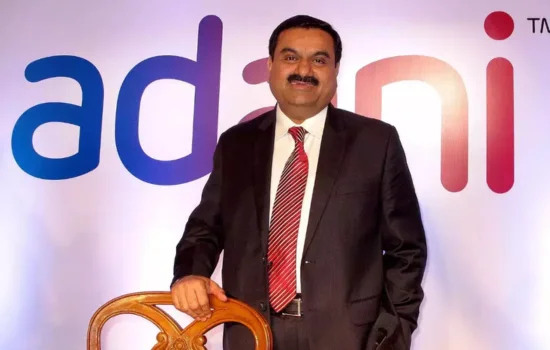In a pivotal development in the legal battle involving Indian billionaire Gautam Adani, a U.S. court has consolidated both civil and criminal cases against him under one judge in the Eastern District of New York. This move underscores the seriousness of allegations surrounding a sprawling bribery and fraud scheme tied to Adani’s renewable energy business.
Background of the Case
The U.S. Department of Justice (DOJ) and the Securities and Exchange Commission (SEC) have brought charges against Gautam Adani, his brother Sagar Adani, and Vneet Jaain, executives of the Adani Group. These charges stem from an alleged scheme involving securities fraud, wire fraud, and violations of the Foreign Corrupt Practices Act (FCPA).
The case alleges that the Adani Group, one of India’s largest conglomerates, engaged in a systematic bribery operation, including over $250 million in alleged payments to Indian officials, to secure favorable contracts for solar energy projects. These actions, prosecutors argue, defrauded global financial institutions and U.S. investors who provided capital under false pretenses.
Allegations in Detail
- Fraudulent Representations: Prosecutors claim that the Adani Group misled investors about the legitimacy of its business practices, failing to disclose that its solar energy deals were facilitated by bribes to Indian government officials.
- Bribery Scheme: The DOJ accuses the defendants of conspiring to violate the FCPA, which prohibits bribery of foreign officials to secure business advantages. The bribes allegedly secured lucrative contracts for the Adani Group in India’s renewable energy sector.
- Investor Deception: The SEC alleges that the Adani Group violated anti-bribery provisions of U.S. securities laws, defrauding investors by masking the corrupt practices underpinning its business operations.
Court’s Consolidation Move
The decision to assign both civil and criminal cases to a single judge aims to streamline judicial proceedings, avoid duplicative efforts, and ensure consistent rulings. The cases will be heard in the Eastern District of New York, a jurisdiction known for handling high-profile financial and corporate crimes.
This consolidation reflects the interconnected nature of the charges. The DOJ’s criminal case will focus on proving intent and violations of federal laws, while the SEC’s civil suit seeks monetary penalties and enforcement actions for regulatory breaches.
Adani Group’s Response

The Adani Group has denied all allegations, labeling them “baseless” and asserting that the company complies with all applicable laws and regulations. In a statement, the conglomerate expressed confidence in the judicial process, emphasizing that its business practices adhere to global standards.
“Gautam Adani and the Adani Group remain committed to transparency and corporate governance. We will vigorously defend against these unfounded claims,” the group said in its official response.
Global Implications
- Impact on U.S.-India Relations: The case comes at a time of growing economic and strategic ties between the U.S. and India. While the allegations focus on individual and corporate misconduct, they could raise questions about governance and transparency in India’s business environment.
- Investor Confidence: With U.S.-based institutional investors heavily involved in funding Indian companies, such cases could prompt heightened scrutiny of Indian firms seeking international capital. Investors may demand greater transparency and accountability from Indian corporations.
- FCPA Enforcement: The DOJ’s case against Adani highlights the extraterritorial reach of the FCPA. It signals to multinational companies that any corrupt practices involving U.S. interests, even indirectly, will face legal consequences.
Adani Group’s Global Operations
The Adani Group is a powerhouse in infrastructure, energy, and logistics, with significant investments worldwide. Its renewable energy division has been central to India’s green energy push, making the current allegations particularly consequential. If the charges are proven, the group could face reputational damage, loss of investor trust, and potential sanctions.
Legal Path Forward
The cases against Gautam Adani and his associates will proceed with pre-trial motions, discovery, and eventually, trials. The outcomes could include criminal penalties, hefty fines, and sanctions against the Adani Group, alongside potential restitution for defrauded investors.
Legal experts note that the consolidated cases are likely to take years to resolve, given the complexity of the allegations and the international dimensions of the evidence. Both the DOJ and SEC will aim to secure strong precedents for combating corruption and fraud involving multinational corporations.
Conclusion
The Adani bribery case represents a significant chapter in global corporate governance and legal accountability. By consolidating civil and criminal proceedings, the U.S. judicial system underscores the gravity of the allegations and the importance of a coordinated approach to justice.
As the proceedings unfold, they will serve as a litmus test for the enforcement of anti-corruption laws and the protection of investor interests in a globalized economy. For Gautam Adani and his associates, the case marks a critical challenge to their corporate legacy and the reputation of one of India’s most prominent business empires.

Hello, I’m Kapil Kumar, a seasoned SEO expert and blogger at WinnersList.in. My mission is to spotlight exceptional individuals and organizations across various domains. Through curated lists, profiles, and inspiring stories, I aim to celebrate outstanding achievements and inspire the next generation of champions. Join me in this journey.
